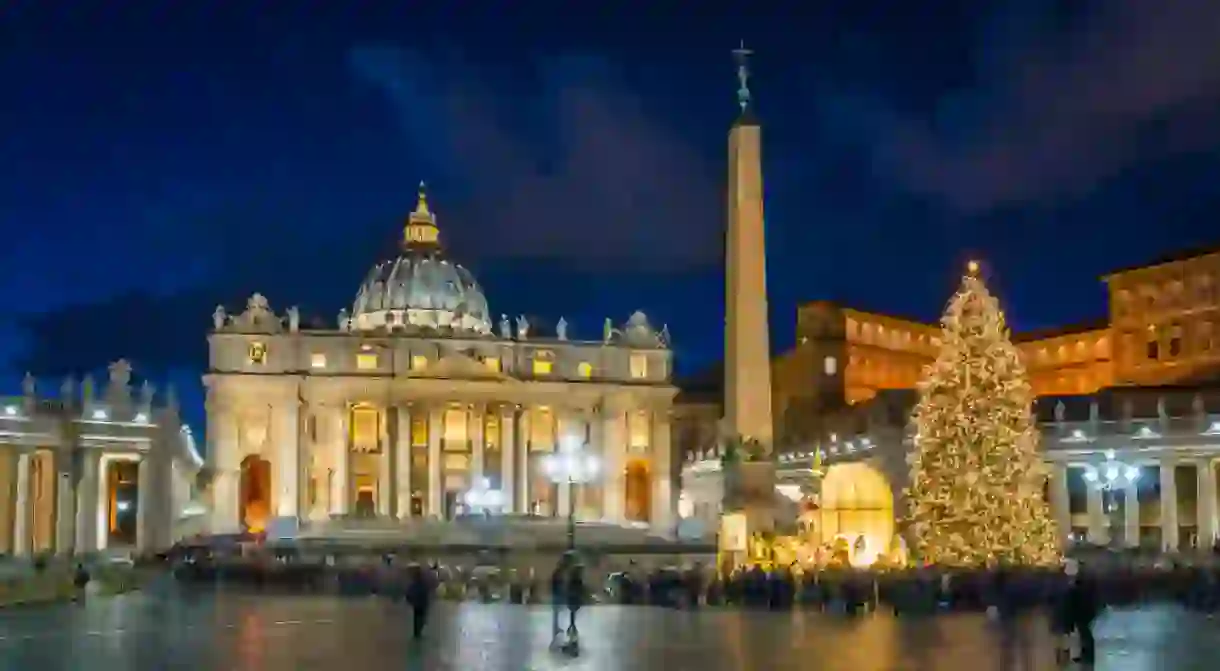How to Celebrate Christmas in Rome

Italy has deep Catholic roots and with the seat of the church based at the Vatican, it’s no surprise that Christmas remains a traditional affair for many Romans. From universal traditions like decorating homes and public squares with nativity scenes, to lesser-known customs like La Befana, here’s how to celebrate the holidays in the Eternal City.
Kick off the festivities on December 8
Unlike in the UK, where Christmas seems to come earlier every year, Italy’s festive calendar is pretty fixed. In Rome, lights and decorations generally start to appear around the beginning of the month but it’s the Immaculate Conception on December 8 that really marks the beginning of the season.
Go see the Christmas tree at the Vatican

Display a presepe

Feast on fish
In the Roman Catholic church Christmas Eve is a day of fasting and abstinence. The Feast of Seven Fishes is the traditional evening meal that takes place on La Vigilia (Christmas Eve). There’s no meat on the menu but seven seafood courses instead. These days, it’s not imperative to prepare the full seven dishes and in Roman kitchens the local specialty of dried salt cod, known as baccalà, is popular.

Piazza Navona Christmas Market
Historical Landmark, Market

Sample festive foods
While turkey is becoming a more frequent addition to the Italian Christmas table, roast lamb, chicken or pork are all traditional options. Of course, there’s always pasta, which in Rome is often in the form of tortellini in brodo – filled pasta served in broth – a dish that originally comes from the Emilia-Romagna region. Don’t forget to save room for a slice of panettone or pandoro.
Get a real taste of Roman cuisine with these delicious food tours of the Italian capital.

See the Pope
Unsurprisingly the Pope has a packed schedule in December so there are a number of opportunities to celebrate Christmas together. Join him at Piazza di Spagna on December 8 when he places a wreath at the base of the Column of the Immaculate Conception and offers prayers to the crowd. Get tickets in advance for the traditional Christmas Eve mass in St. Peter’s Basilica, or just show up on December 25 for the special Urbi et Orbi blessing in the square outside.

Wait for La Befana
In Italy, it’s not Santa Claus who showers children with gifts but La Befana. The story goes that the Three Wise Men knocked on her door in search of directions. The old woman couldn’t help but let them stay the night. After they left, she realised she too wanted to join the search. To this day, La Befana still flies around on her broomstick, looking for Christ. On January 5, the eve of the Epiphany, she leaves sweets in the stockings of well-behaved boys and girls. This marks the end of the season’s festivities – l’Epifania, che tutte le feste si porta via!
Learn all about the customs and traditions of Rome with these cultural city tours.














